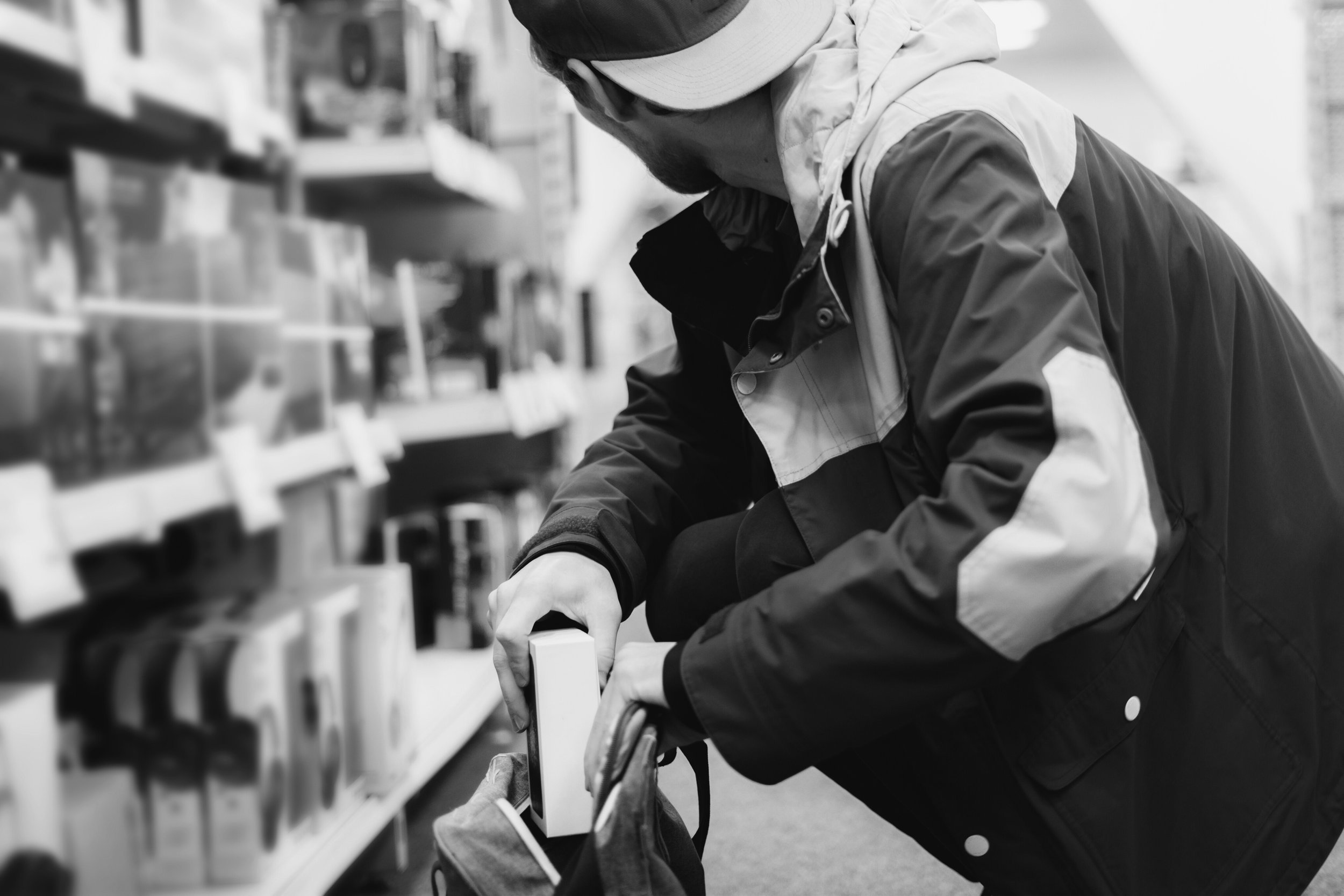Shoplifting Laws in Pennsylvania: Penalties and Legal Consequences
Shoplifting is a crime that occurs more frequently than one might think, and understanding its legal ramifications is essential. In Pennsylvania, as in many other states, shoplifting is taken seriously, and those caught may face significant penalties and consequences. In this blog, we will explore Pennsylvania's shoplifting laws, the potential penalties, and what you need to know if you find yourself facing shoplifting charges.
What Is Shoplifting?
Shoplifting is a common term for the act of taking merchandise from a store without paying for it, but it encompasses a broader range of behaviors that can have legal consequences. Understanding the various forms of shoplifting is crucial to appreciate the diversity of actions that fall under this legal category:
Traditional Shoplifting: This form of shoplifting involves physically taking items from a store without paying for them. It can include concealing items in bags, clothing, or personal belongings and attempting to leave the store without paying.
Price Tag Alteration: Shoplifters sometimes manipulate price tags or barcodes to reduce the apparent cost of an item. They might switch price tags between items or use tools to alter barcodes, allowing them to purchase goods at a lower price than their actual value.
Concealment: Concealment shoplifting occurs when individuals hide merchandise on their person or in bags, strollers, or other personal items with the intent to leave the store without paying. This form often involves strategically placing items out of view to avoid detection.
Shopping Cart "Push-Out": Some shoplifters use shopping carts to hide merchandise and then attempt to push the cart out of the store without paying. This method is a variation of traditional shoplifting.
Theft of Store Property or Services: Shoplifting laws extend beyond merchandise theft. Individuals can be charged with shoplifting for stealing store property, such as shopping carts, baskets, or display items. Additionally, attempting to fraudulently obtain services, like gift cards or refunds, can also constitute shoplifting.
Shoplifting Laws in Pennsylvania
Pennsylvania has established specific laws governing theft and shoplifting, and these laws are detailed under the state's criminal code. Shoplifting in Pennsylvania is typically categorized as a form of theft, and the severity of the charge depends on various factors, primarily the value of the stolen items and the circumstances surrounding the theft.
Key elements encompassed by Pennsylvania's shoplifting laws include:
Intent to Deprive: A crucial element of shoplifting charges is the intent to deprive the store owner of the property. This means that the accused intended not to pay for the items or to pay less than their actual value.
Unauthorized Control: Shoplifting charges may result when individuals gain unauthorized control over merchandise. This includes possessing items outside the store without proper payment or consent.
Leaving the Store Premises: Attempting to leave the store premises without making payment or attempting to do so is a critical factor in shoplifting cases. Even if a shoplifter is caught before exiting, the intent to deprive the store of property may still lead to charges.
Enforcing shoplifting laws in Pennsylvania is a collaborative effort between store personnel and law enforcement agencies. Store employees are often trained to identify suspicious behavior and may detain individuals suspected of shoplifting until law enforcement arrives. These store-level efforts are integral to enforcing shoplifting laws effectively.
Penalties for Shoplifting
The penalties for shoplifting in Pennsylvania vary based on factors such as the value of the stolen items and the defendant's criminal history. The potential penalties for shoplifting include:
Fines: Individuals convicted of shoplifting may face fines, the amount of which varies depending on the value of the stolen goods. Higher-value thefts typically result in more substantial fines.
Probation: Courts may impose probation as part of the sentence for shoplifting. During probation, the individual must adhere to specific conditions, such as regular check-ins with a probation officer, avoiding further criminal activity, and possibly attending theft prevention programs.
Community Service: Shoplifting penalties may include mandatory community service, where the individual must perform unpaid work for a specified period. Community service aims to provide a form of restitution to the community.
Imprisonment: For more serious shoplifting offenses, individuals may face jail or prison time. The severity of imprisonment depends on factors such as the value of stolen items and the defendant's criminal record. Individuals with prior convictions may face more substantial sentences.
It is crucial to recognize that shoplifting convictions can have enduring consequences. Beyond the immediate penalties, a shoplifting conviction results in a criminal record, which can adversely affect future employment prospects, housing applications, and educational opportunities.
Defenses Against Shoplifting Charges
When individuals find themselves facing shoplifting charges, it's important to remember that they have legal options and potential defenses that can be used to challenge the accusations. These defenses can make a significant difference in the outcome of the case. Here are some common defenses that can be employed in response to shoplifting charges:
Mistaken Identity: Sometimes, individuals may be wrongfully accused of shoplifting due to mistaken identity. This defense asserts that the person charged was not the one involved in the alleged theft. Eyewitness testimony, surveillance footage, or alibis can be used to support this defense.
Lack of Intent: Shoplifting charges often hinge on the intent to deprive the store of property. If the accused can demonstrate that they did not intend to steal or that the act was accidental, it can be a valid defense. For instance, if someone inadvertently placed an item in their bag and intended to pay for it, it may not constitute shoplifting.
Consent: In some cases, individuals may have received explicit or implied consent to take items from the store without payment. For example, if a store employee or manager gave permission for the accused to leave without paying, it may serve as a defense against shoplifting charges.
Duress or Coercion: If an individual can demonstrate that they were compelled to shoplift under duress or coercion, it may be a valid defense. This defense asserts that the accused committed the act due to fear for their safety or the safety of a loved one.
Procedural Errors: Defenses can also arise from procedural errors or violations of the accused's rights during the arrest or investigation. These may include unlawful search and seizure or a failure to inform the accused of their rights.
It's essential to note that the effectiveness of these defenses depends on the specific circumstances of the case and the quality of legal representation. Consulting with an experienced criminal defense attorney is crucial to assess the validity of these defenses and develop a strong legal strategy tailored to the individual's situation.
Civil Consequences of Shoplifting in Philadelphia
In addition to the criminal penalties associated with shoplifting, individuals may face civil consequences resulting from their actions. These civil consequences can have a lasting impact on one's financial well-being and legal standing. Here are key aspects of civil consequences related to shoplifting:
Civil Lawsuits: Store owners have the option to pursue civil lawsuits against individuals who have shoplifted from their establishments. In these cases, the store seeks to recover damages, which may include the value of stolen merchandise, legal fees, and additional costs incurred due to the theft.
Restitution: As part of a criminal sentence or a civil lawsuit, individuals convicted of shoplifting may be required to pay restitution to the store. Restitution aims to compensate the store for its losses resulting from the theft.
Civil Judgments: If a civil lawsuit is successful, a civil judgment may be entered against the defendant. This judgment can negatively impact an individual's credit score and may lead to wage garnishment or other financial consequences.
Juvenile Shoplifting
When juveniles are involved in shoplifting cases in Pennsylvania, the legal system approaches these cases differently compared to those involving adults. The state places a strong emphasis on rehabilitation and addressing the underlying causes of juvenile delinquency.
Szanto Law: Legal Counsel for Shoplifting Cases
If you or a loved one is facing shoplifting charges in Pennsylvania, seeking legal counsel is critical. An experienced criminal defense attorney, like Jules Szanto at Szanto Law, can assess your case, negotiate with prosecutors, and build a robust defense strategy to achieve the best possible outcome.
Shoplifting is a crime that carries significant legal consequences in Pennsylvania. Understanding the laws and potential penalties is essential for anyone facing shoplifting charges. Whether you're a first-time offender or have prior convictions, seeking legal guidance is the first step in protecting your rights and future.
If you're dealing with shoplifting charges in Pennsylvania, don't hesitate to contact Szanto Law for experienced legal representation. We are here to help you navigate the complexities of your case and work toward a favorable resolution. Your future is worth defending.

